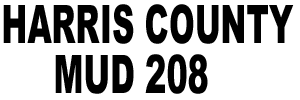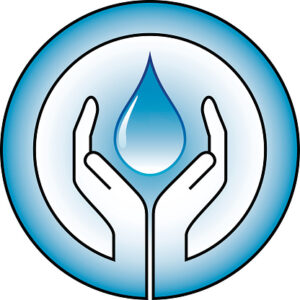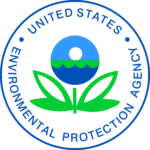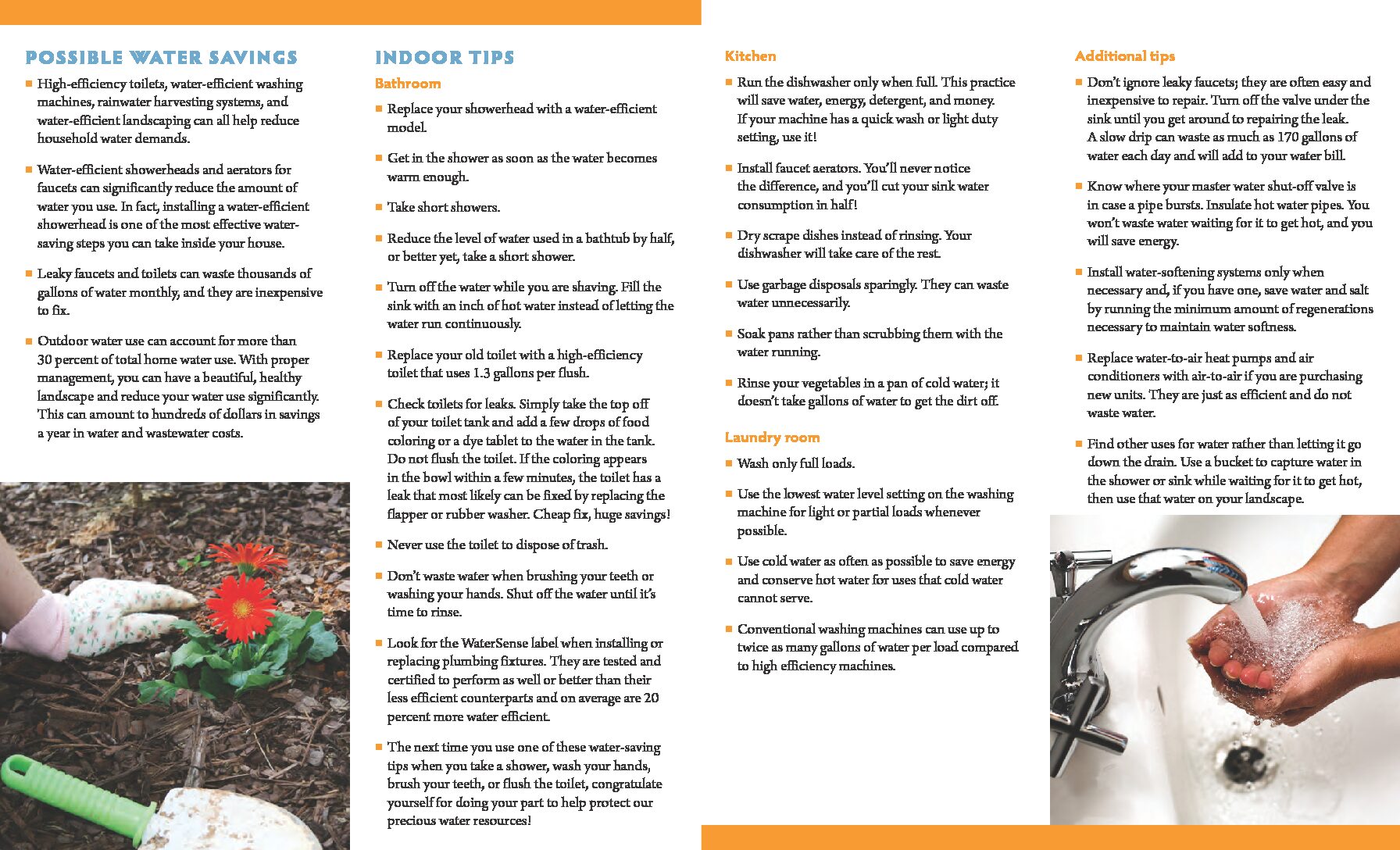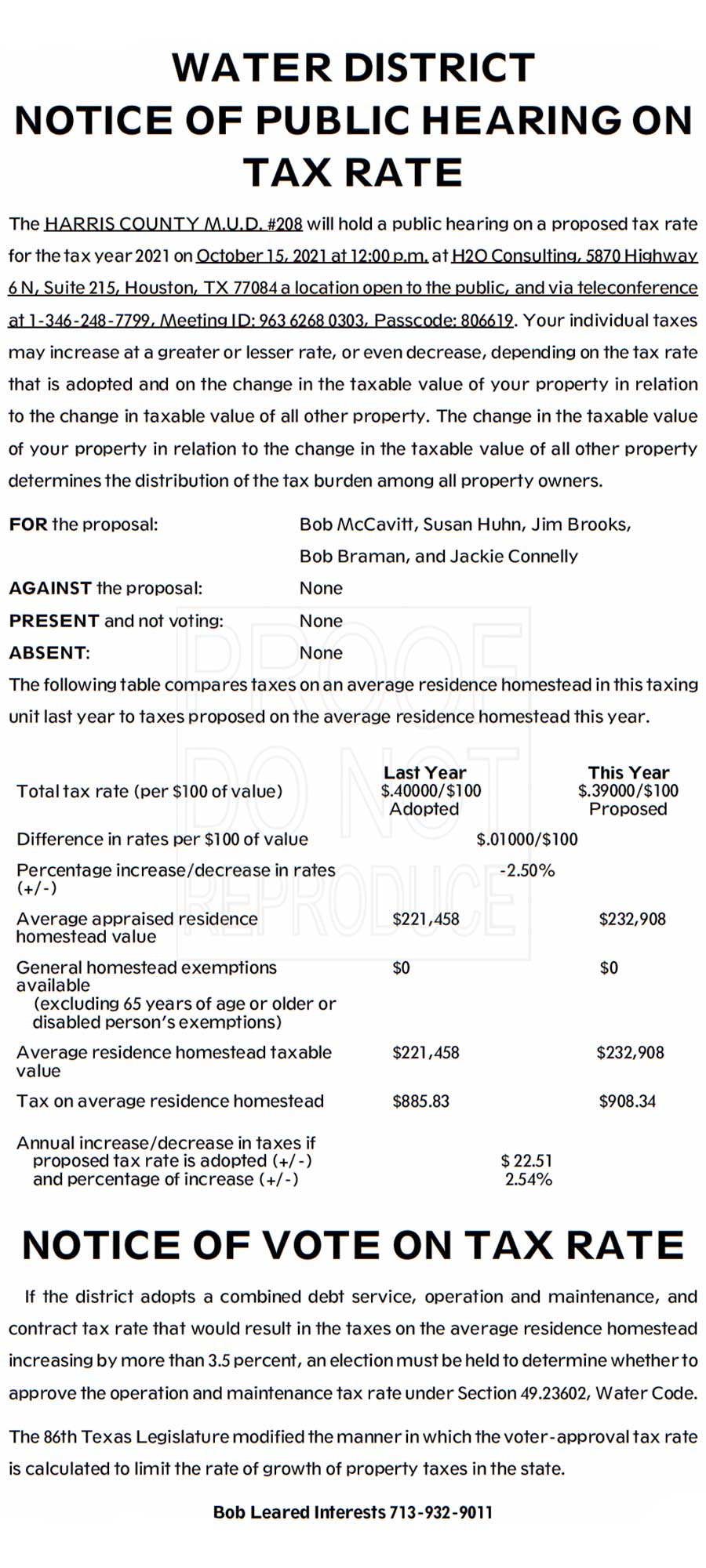About HCMUD 208
This author has not yet filled in any details.So far HCMUD 208 has created 70 blog entries.
Water Conservation 2022
We know living in Texas, water conservation can be inherently more difficult during the summer months and that’s why the EPA and the Texas Water Development Board has published water savings tips that will not only show you how to help conserve water, but also help you conserve cost.
The EPA has recommended the following:
Outdoors
- Maximize the use of natural vegetation and establish smaller lawns. For portions of your lot where a lawn and landscaping are desired, ask your local nursery for tips about plants and grasses with low water demand (such as creeping fescue). Consider planting more trees, shrubs, ground covers, and less grass. Shrubs and ground covers provide greenery for much of the year and usually demand less water. Use native plants in flower beds. Native plants have adapted to rainfall conditions in Texas and often provide good wildlife habitat. Cluster plants that require extra care together to minimize time and save water.
- When mowing your lawn, set the mower blades to 2-3 inches high. Longer grass shades the soil improving moisture retention, has more leaf surface to take in sunlight, allowing it to grow thicker and develop a deeper root system. This helps grass survive drought, tolerate insect damage and fend off disease.
- Only water the lawn when necessary. If you water your lawn and garden, only do it once a week, if rainfall isn’t sufficient. Avoid watering on windy and hot days. Water the lawn and garden in the morning or late in the evening to maximize the amount of water which reaches the plant roots (otherwise most of the water will evaporate). Use soaker hoses to water gardens and flower beds. If sprinklers are used, take care to be sure they don’t water walkways and buildings. When you water, put down no more than 1 inch (set out an empty cans to determine how long it takes to water 1 inch) each week. This watering pattern will encourage more healthy, deep grass roots. Over-watering is wasteful, encourages fungal growth and disease, and results in the growth of shallow, compacted root systems that are more susceptible to drought and foot traffic. If an automatic lawn irrigation system is used, be sure it has been properly installed, is programmed to deliver the appropriate amount and rate of water, and has rain shut-off capability.
- Apply mulch around shrubs and flower beds to reduce evaporation, promote plant growth and control weeds.
- Add compost or an organic matter to soil as necessary, to improve soil conditions and water retention.
- Collect rainfall for irrigation in a screened container (to prevent mosquito larvae growth).
- When washing a car, wet it quickly, then use a bucket of water to wash the car. Turn on the hose to final rinse (or let mother nature wash your car when it rains).
- Always use a broom to clean walkways, driveways, decks and porches, rather than hosing off these areas.
The EPA has recommended the following:
For Every Room in the House With Plumbing
- Repair leaky faucets, indoors and out.
- Consider replacing old equipment (like toilets, dishwahers and laundry machines).
In the Kitchen
- When cooking, peel and clean vegetables in a large bowl of water instead of under running water.
- Fill your sink or basin when washing and rinsing dishes.
- Only run the dishwasher when it’s full.
- When buying a dishwasher, select one with a “light-wash” option.
- Only use the garbage disposal when necessary (composting is a great alternative).
- Install faucet aerators.
In the Bathroom
- Take short showers instead of baths.
- Turn off the water to brush teeth, shave and soap up in the shower. Fill the sink to shave.
- Repair leaky toilets. Add 12 drops of food coloring into the tank, and if color appears in the bowl one hour later, your toilet is leaking.
- Install a toilet dam, faucet aerators and low-flow showerheads.
Laundry
- Run full loads of laundry.
- When purchasing a new washing machine, buy a water saving model that can be adjusted to the load size.
For more information, click below
The Texas Water Development Board offers water saving ideas and cost savings tips!
Hurricane Preparedness 2022
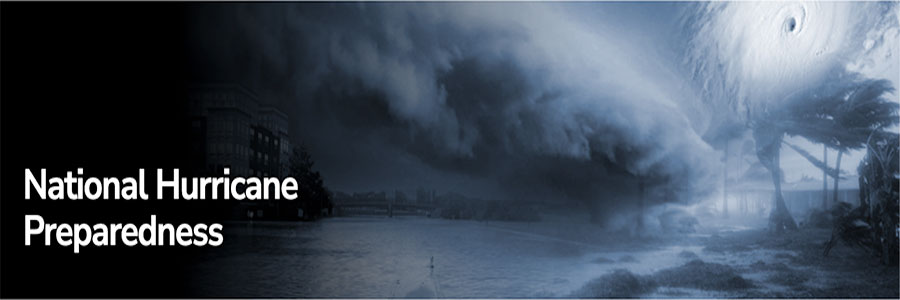
Be ready for hurricane season. Today you can determine your personal hurricane risk, find out if you live in a hurricane evacuation zone, and review/update insurance policies. You can also make a list of items to replenish hurricane emergency supplies and start thinking about how you will prepare your home for the coming hurricane season. If you live in hurricane-prone areas, you are encouraged to complete these simple preparations before hurricane season begins on June 1.
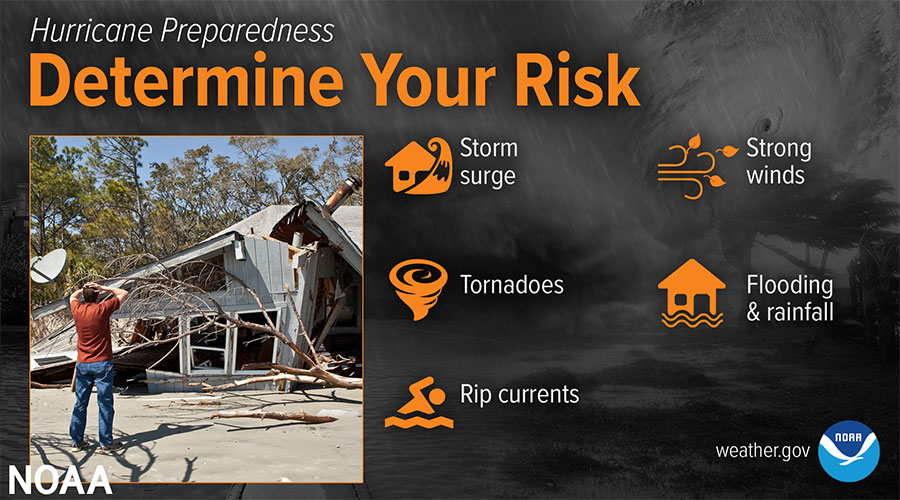
Find out today what types of wind and water hazards could happen where you live, and then start preparing how to handle them. Hurricanes are not just a coastal problem. impacts from wind and water can be felt hundreds of miles inland, and significant impacts can occur regardless of the storm’s strength. Know if you live in an area prone to flooding and if you’re safe to remain in your home.
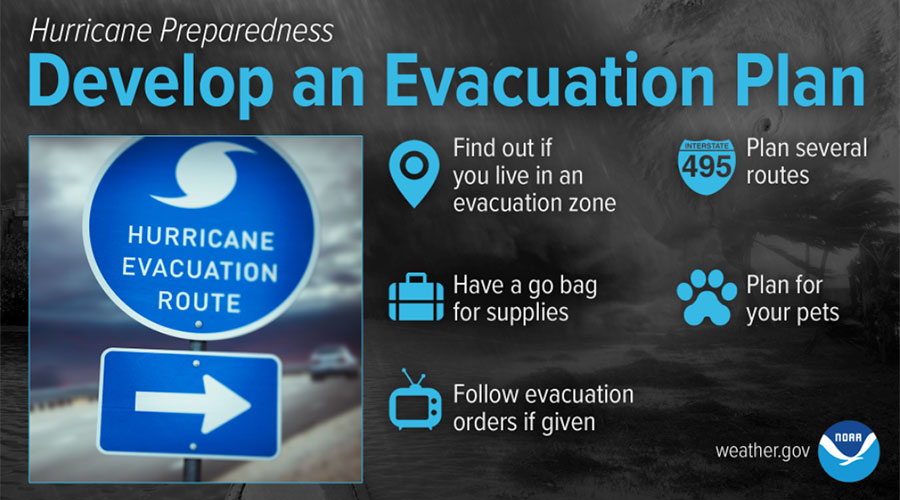
Find out if you live in a hurricane evacuation zone. You may also need to leave if you live in a flood prone area or in a mobile home outside a hurricane evacuation zone. Now is the time to begin planning where you would go and how you would get there.
You do not need to travel hundreds of miles. Your destination could be a friend or relative who lives in a well built home outside flood prone areas. Remember, your safest place may be to remain home. Be sure to account for your pets in your plan.
As hurricane season approaches, listen to local officials on questions related to how you may need to adjust any evacuation plans based on the latest health and safety guidelines from the CDC and your local officials.
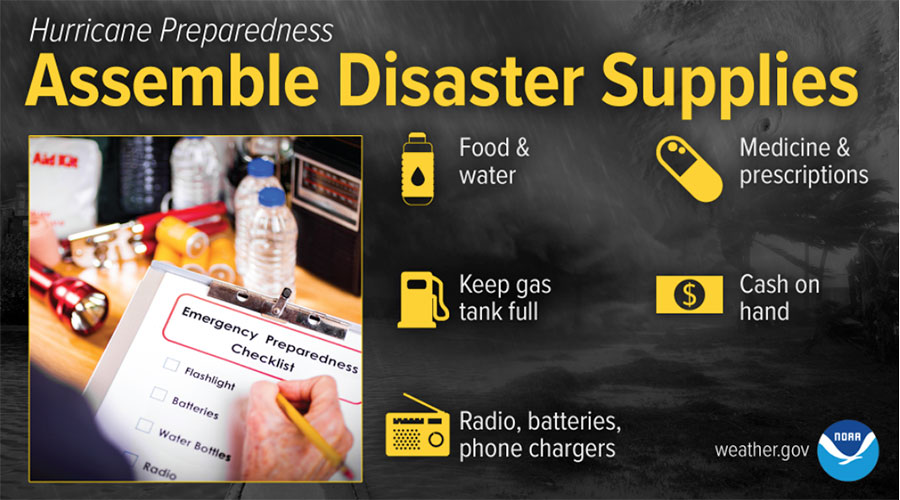
Whether you’re evacuating or sheltering-in-place, you’re going to need supplies not just to get through the storm but for the potentially lengthy and unpleasant aftermath. Have enough non-perishable food, water and medicine to last each person in your family a minimum of 3 days (store a longer than 3-day supply of water, if possible). Electricity and water could be out for at least that long. You’ll need extra cash, a battery-powered radio and flashlights. You may need a portable crank or solar-powered USB charger for your cell phones.
If you need to go to a public shelter, follow health guidelines from your local officials and the CDC.
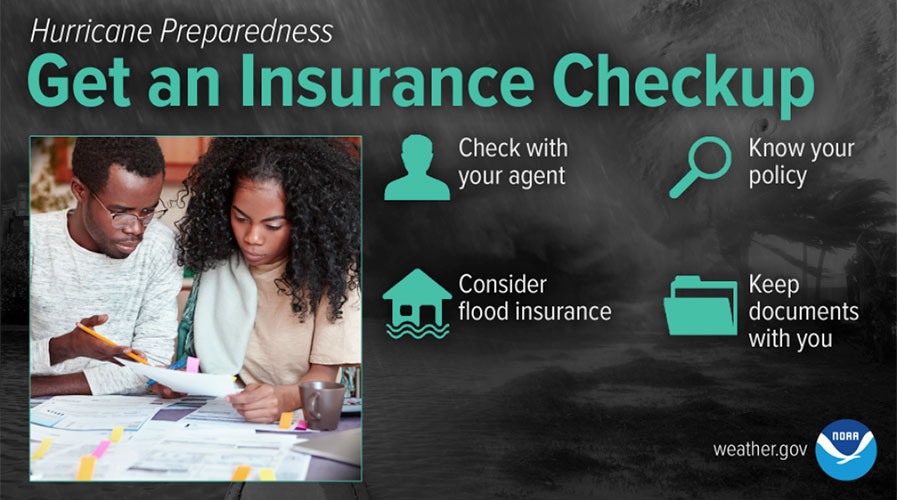
Call your insurance company or agent and ask for an insurance check-up to make sure you have enough insurance to repair or even replace your home and/or belongings. Remember, home and renters insurance doesn’t cover flooding, so you’ll need a separate policy for it.
Flood insurance is available through your company, agent, or the National Flood Insurance Program at floodsmart.gov. Act now, as flood insurance requires a 30-day waiting period.
- FLASH Insurance Guide: If Disaster Strikes, Will You Be Covered?
- Find available coverage at floodsmart.gov
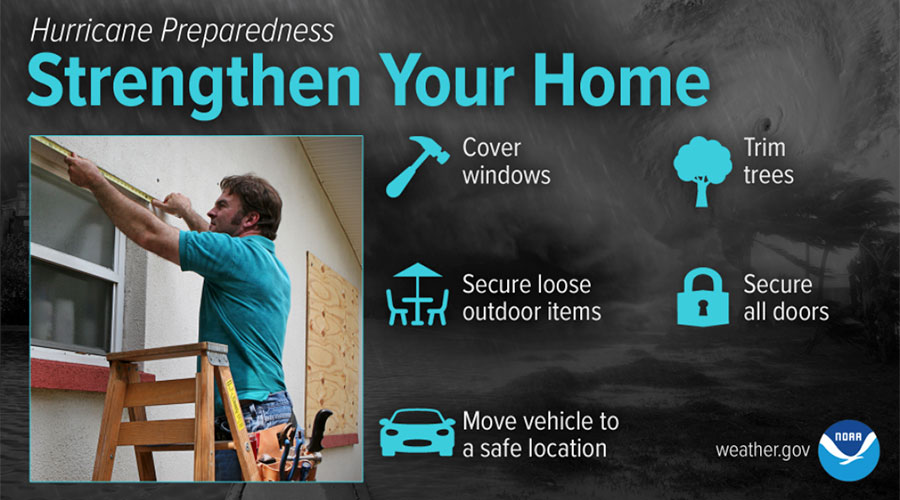
Whether you’re evacuating, or planning to ride out the storm in your home, make sure it is in good repair and up to local hurricane building code specifications to withstand wind impacts. Many retrofits are not as costly or time consuming as you may think.
Have the proper plywood, steel or aluminum panels to board up the windows and doors. Remember, the garage door is the most vulnerable part of the home, so it must be able to withstand the winds.
If you’re a renter, work with your landlord now to prepare your home for a storm.
- FLASH: How-To Videos
- Protect Your Home From Flooding Video (English/Spanish)
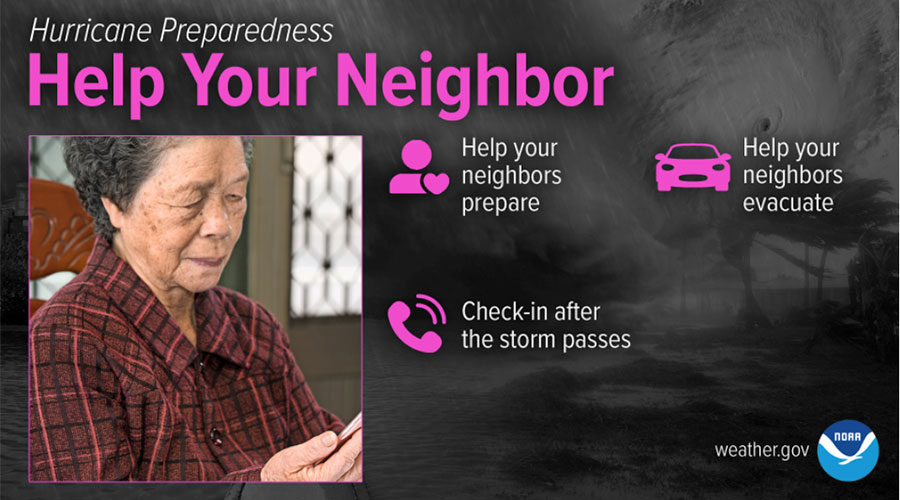
Many people rely on their neighbors before and after a disaster, and there are many ways you can help them. Learn about all the different actions you and your neighbors can take to prepare and recover from the hazards associated with hurricanes.
Start the conversation now with these Neighbor Helping Neighbor strategies but remember you may need to adjust your preparedness plans based on the latest health and safety guidelines from the CDC and your local officials.
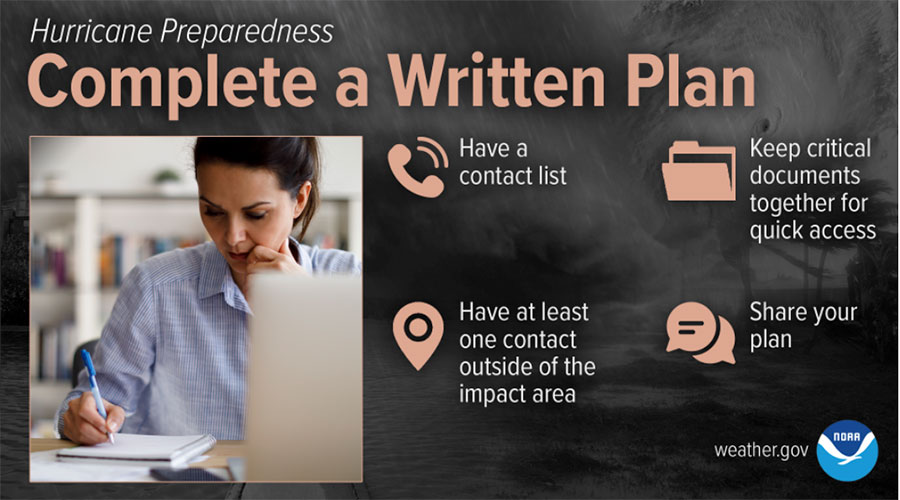
The time to prepare for a hurricane is before the season begins, when you have the time and are not under pressure. If you wait until a hurricane is on your doorstep, the odds are that you will be under duress and will make the wrong decisions.
Take the time now to write down your hurricane plan. Know who issues evacuation orders for your area, determine locations on where you will ride out the storm, and start to get your supplies now. Being prepared before a hurricane threatens makes you resilient to the hurricane impacts of wind and water. It will mean the difference between being a hurricane victim or a hurricane survivor.
Summer Water Conservation Rates
Summer water conservation rates are now in effect through the end of September.
2021 Tax Rate Set
2021 TAX RATE SET
The Board of Directors of Harris County MUD 208 (the district) voted to decrease the 2021 MUD Property Tax Rate to $0.39 per $100 valuation. The total tax rate consists of $0.08 per $100 valuation to pay the District’s debt service and $0.31 per $100 valuation to fund maintenance and operation expenditures for the next year. Please keep in mind this rate is for the district only. Other entities, including the county, school district, hospital district, etc., set their own rates.
The Board of Directors also authorized Bob Leared Interests, the tax assessor-collector for the district, to mail duplicate tax statements in January 2022. These statements will be mailed to homeowners whose original tax statement was requested by and mailed to a mortgage company AND remains unpaid at the time of the January mailing. If you receive a DUPLICATE TAX STATEMENT, this is your reminder to contact your mortgage company to ensure their timely payment of your MUD taxes by January 31, 2022. If you receive a statement, but escrow your taxes, it is your responsibility to forward the tax statement on to your mortgage company.
You can view, pay, and print receipts for your MUD tax account online at www.bli-tax.com or through the Bob Leared Interests link on our website, www.harriscountymud208.com There is an additional processing fee when making online payments. In addition to paying through the website, you can pay the district taxes by phone, by calling OPAY Customer Service at (800)487-4567 between the hours of 7:00 am and 7:00 pm CST. You must tell the representative you need to pay your TEXAS taxes. You will need your account number which begins with “229”. There is an additional processing fee when making payments by phone.
If you have not received your 2021 Harris County MUD 208 tax statement by the end of November, and you are unable to locate your account online at www.bli-tax.com, please contact the tax assessor-collector at 713-932-9011 to discuss your tax account.
BOB LEARED IS NOT AFFILIATED WITH DOXO.COM
Storm Preparations for TS Nicholas
MUD 208 Storm Preparations for TS Nicholas are complete. Utility crews working 24/7 throughout storm. Report water and sewer emergencies 24/7 at 281-861-6215
Summer Water Conservation Rates
Summer water conservation rates are now in effect through the end of September.
Sanitary Sewer Repairs
Beginning the week of April 26th through July MUD 208 will be performing sanitary sewer repair and rehabilitation work. This work will consist of excavation and repairs to the sanitary sewer collection lines and manholes. Additional repairs will be completed through trenchless construction using a pipe liner. If access is required into a residents’ back yard a notification should be provided in advance of the need for access. The work will take place in the following locations:
Royal Gardens ROW between Ashton Dr and Shangrila Ln
Shangrila Ln ROW, just south of Royal Gardens
North and south back lots along Shangrila Ln (north of Royal Gardens)
Back lots between Thorncreek Way/Woodlett Ct and between Woodlett Ct/View Park Ln (south of Royal Gardens)
Forest Heights Drive ROW between Rock Falls Ct and Round Grove Ln
Back lots between Sunny Oaks Way and Honey Creek Ln
Back lots south of Rainbow Lake Rd (west of Pine Falls Dr)
For any questions please contact H2O Consulting at 281-861-2615.
Well Done H2O Consulting!
H2O Consulting deserves a big Thank You from all of MUD 208 residents for their preparations and hard work before and during the recent freeze event to keep the water system up and running the entire time.
Winterization preparations, which includes wrapping valves, insulating controls, and installing space heaters, were completed by the end of October. Before the storm hit, they reviewed critical items, such as making certain they had adequate fuel and inspecting all power supply lines to insure they are free and clear of any tree limbs that might come crashing down. H2O Consulting employees had to check all the utility trucks to make sure they were road-ready, including full gas tanks and equipped with necessary tools like heat torches and bolt cutters. They also made certain the generators and natural gas engines were working properly. Spare parts for piping repairs were purchased and nonessential plumbing at facilities were isolated and drained. The day before the freeze hit, they made final adjustments to critical valves and controls. If you were signed up to receive alerts, you would have received one at this time to remind you to prepare your own home for this event. Along with having several meetings to discuss coverage at multiple facilities and communication plans, these guys worked endlessly to ensure that residents of MUD 208 had water safe to drink throughout the event. All the while, H2O employees had to deal with the same type of situations that we were experiencing in our own homes.
Noticed the mention of an alert being sent out? If you have not signed up for the alert system, now is as good a time as any to do so. All you need to do is click on the link on the right side of this webpage or text MUD208 to 474747. If we need to communicate with you at any time during any extreme weather event, you will have reliable, accurate, and up to date information directly from your district.
You can also enroll for e-mail alerts by visiting H2O Consulting’s website at https://h2oconsulting.net/alerts. Note that there are separate sign-ups for e-mail alerts and text alerts. Be sure to indicate MUD 208 as your district.
Your contact information will not be used for any purpose other than to communicate with you regarding your district’s news and information.
